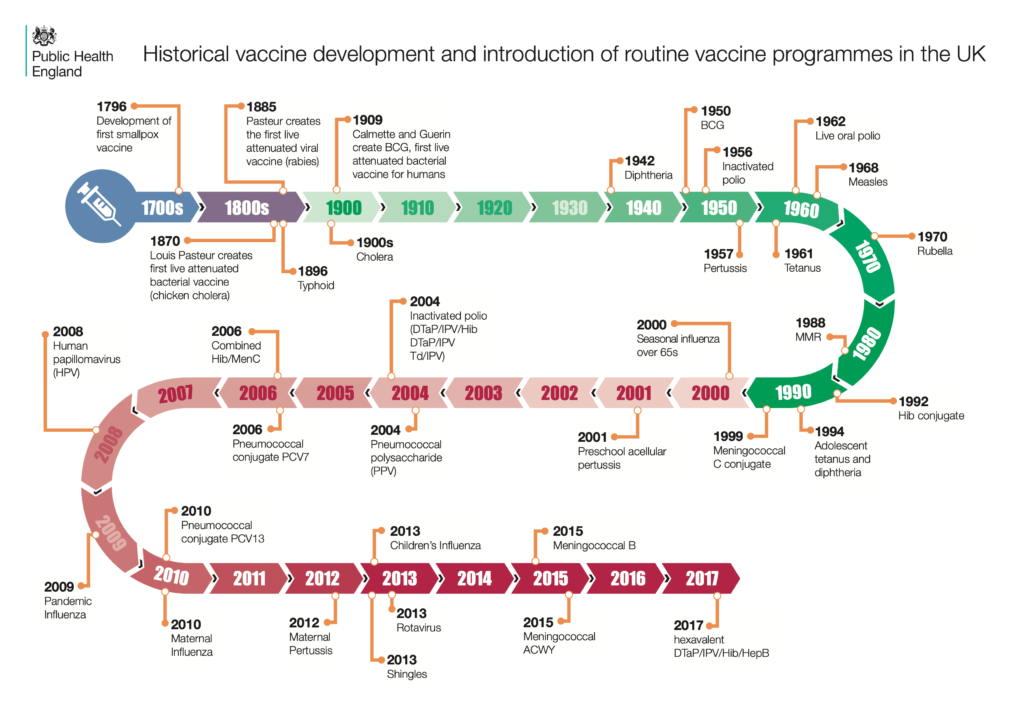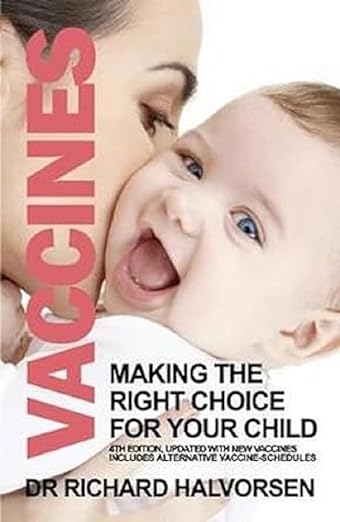Should vaccine pros and cons be a subject of debate? I last wrote a blog on Vaccines back in August 2022 after reading a book by Dr Suzanne Humphries and Roman Bystrianyk, titled Dissolving Illusions, Disease Vaccines and the Forgotten History. That blog and this are mostly about vaccines, but I touch on homeopathy at the end
Any debate on vaccine pro and cons has a certain minefield quality and so I tread carefully! As with my earlier blog, I open with the position statement of the Society of Homeopaths with whom I am registered. You may read it as somewhat political.
“The Society does not permit RSHoms to provide advice on, or participate in a patient’s decisions regarding vaccination. In line with current UK law, they may signpost patient to information on vaccination from reliable sources, including the NHS, so that they can make a fully informed decision. Homeopaths will support patients in their decision.”
And that is the guidance I will follow.
Absolutes keep things simple, but actually most things are not that simple. Including this topic.
Although a long time ago, I was vaccinated as a child (and our family doctor was Faculty of Homeopathy member) and our son also. I am no fundamentalist either way.
However, I am in favour of ‘informed consent’. Retired GP Dr Bob Leckridge covers the point rather well in his thoughtful and recent blog.
I am also rather a fan of the writings of Dr Malcolm Kendrick and I referred to his blog on vaccines both in 2022 and last month. His last paragraph rather sums up my concern:
‘Yes, Jenner is a now national treasure; vaccination has also become a national treasure. Both exist in a realm above all criticism. This is never a good thing. Particularly not in the world of science. But it has happened. Dare to critically examine either, at your great peril. Try suggesting that the whole concept of vaccination was pure luck, primarily based on a two-thousand-year-old idea, and you will be attacked. This, I guarantee.‘
Let’s first consider the concept of risk as this is central to the question of vaccination.
In my past career in the petrochemical industry, risk management was as daily consideration. Here is a simple formula:
Risk = Probability x Consequence.
For example there is a high probability that in the winter months that you ‘catch’ a cold but mostly the consequence is low as you will recover in a few days. Thus, the high probability is offset by low consequence and the net risk is low.
In contrast – taking the beginning of the pandemic as an example – potentially, both the probability and consequence were high. Thus, there was a case for intervention to mitigate the risk. Whether or not you agreed with the subsequent actions of Government does not matter, it is the principle that I wish to share.
What is an acceptable risk is a rather complex matter. It varies according to time a place. On a recent overnight train journey in India I found the carriage exit door wide open as we thundered along!
In contrast, there’s a current spat between the operator and rail regulator over the necessity of having central locking on the heritage carriages used on the Jacobite excursion train in the west highlands.
Clearly different perspectives.
Vaccination programmes are a form of risk management. We balance the risk from the disease against the risk from the vaccine.
The timeline shown below is helpful.

I was born in 1954, my son in 1989. I invite you to find these dates and consider how attitudes change.
Now look at the find the full current schedule here.
It seems that we are increasingly risk averse. Granted, in the past there was no choice but to accept the risk as the vaccines had not been developed.

If you wish to research this subject, the book shown alongside is an excellent and thoroughly researched, as the listings at the end of the book show.
Dr Halvorsen carefully considers each disease, its hazards and the associated vaccine.
He also dips into the commercial aspects and marketing strategies. Unfortunately, these sit below the radar. Such matters may or may not trouble you, but like it or not this is a multimillion pound global business, not an altruistic undertaking.
MMR is a vaccine for Measles, Mumps and Rubella (German measles). It is a combination of three live attenuated viruses.
Back in the 1990s it was the subject of a scare linking it to autism. Halvorsen covers the whole story dispassionately in great detail and I don’t propose to summarise the story here. It is surely the ultimate ‘landmine’ topic. Suffice to say, all concerns have been ‘kicked into touch’.
What is interesting is the risk from measles, the most problematic of the three. Complications such as pneumonia, encephalitis and ear infections can result.
He tells us in Chapter 10, Measles – the ‘Killer’ Disease, that at the beginning of the twentieth century this was undoubtably true:
‘The number of people dying from measles was greater than the deaths from smallpox, scarlet fever and diphtheria combined. However by the time of the introduction of the vaccine in the late 1960s the rate had fallen to one in 10,000 cases’.
And the hazard is not uniform, as with most diseases the malnourished and immune compromised are at greater risk. This echoes much of what is to be found in book by Humphries and Bystianyk reported in my August 2022 blog.
The question arising is the point at which the risk from vaccination exceeds the risk from the disease.
My son with great kindness (and a wind-up!) gave me the book Bad Science by Dr Ben Goldacre. Goldacre, by the way, is less than complementary about homeopathy. Be that as it may, he writes well. Like Dr Kendrick (see Doctoring Data), he recognises the number games that pharmaceutical firms play.
On the subject of risk, Goldacre writes the following:
‘Whenever we take a child to be vaccinated, we’re aware that we are striking a balance between benefit and harm (my emphasis), as with any medical intervention. I don’t think vaccination is all that important: even if mumps orchitis, infertility, deafness and death and the rest are no fun, the sky would not fall in without MMR. But taken on their own, lot’s of other individual risk factors aren’t very important either, and that’s no reason to abandon all hope of trying to do something simple, sensible and proportionate about them, gradually increasing the health of the nation, along with all the other stuff you can do to the same end.’
Which is fair. Except that I don’t think most people are aware of the balance between benefit and harm. You can always have too much of a good thing.
Which brings us back to informed consent and Dr Leckridge’s blog.
Life is a risky business. You can die or be injured by of lots of things.
As a child, I remember borrowing a friends bike. He did not tell me about the poor brakes. My run down the hill ended as I clipped the back of a moving car. No real harm done, but a second earlier I could have crossed in front with worse consequences.
Once I ran into a clothes line getting a nice ‘burn’ a fraction below the eye.
I also saw a school mate knocked into the air by a car (he survived); someone further down the school didn’t when tragically he ran round the front of the bus and failed to watch out for a passing car.
I stand with all the doctors mentioned above. It should be possible to have a fair and open discussion on any medical intervention, the current vaccination programme included. It may be the ‘bees-knees’ in health care, but is the benefit overstated and risk underplayed? A common strategy, Halvorsen notes.
As it stands the ‘system’ incentivises adherence to a rather inflexible policy; hardly an environment of ‘informed consent’.
Barely mentioned in this article and there are a range of views. Individuality is a fundamental principle in homeopathy, so ‘one size fits all’ doesn’t quite gel. And immunity is not just about antibodies (the end goal of vaccines) but strong innate health.
Dr James Compton Burnett (1840-1901) a notable homeopath from the past, noted that amongst those vaccinated against smallpox a few suffered adverse effects, which he was able to address. As of old homeopathic treatment can address such effects today should they arise.